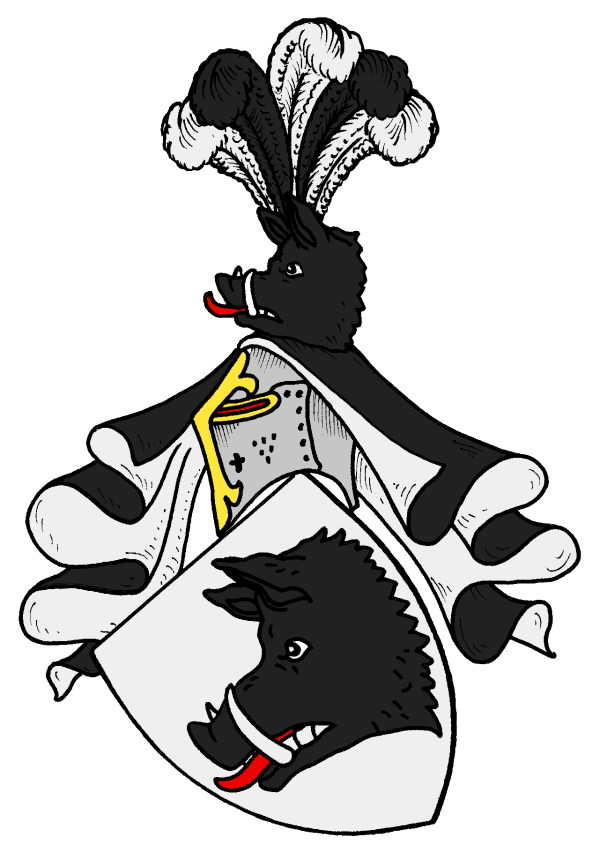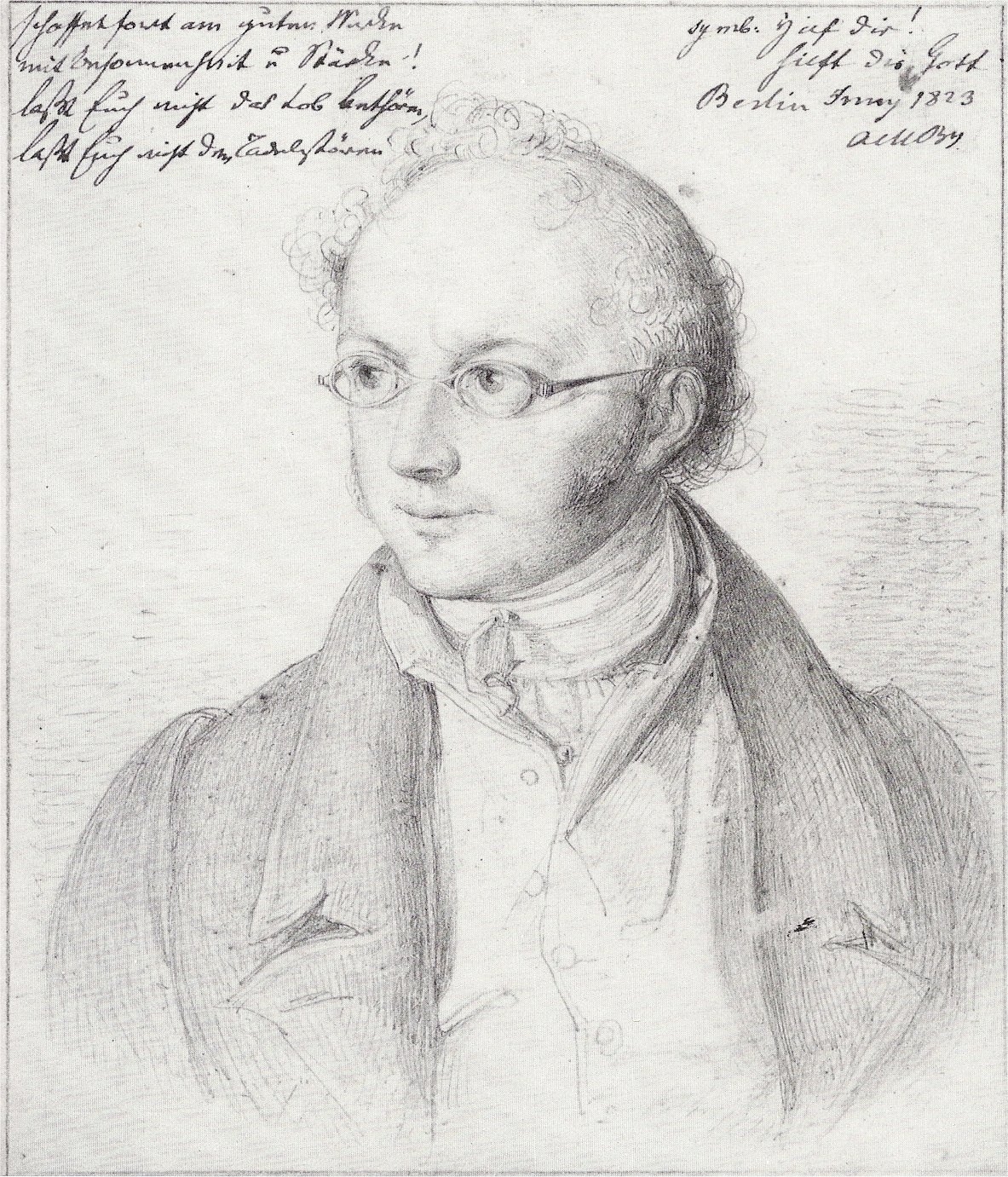|
Fanny Von Arnstein
Baroness Franziska "Fanny" von Arnstein (29 September 1758 – 8 June 1818), born Vögele Itzig, was a Viennese socialite and salonnière. Biography Fanny Arnstein was born in Berlin, the daughter of Daniel Itzig. She was a member of the extensive and influential Jewish Itzig family. She married the banker Nathan Adam von Arnstein, a partner in the firm of ''Arnstein and Eskeles''; her sister Caecilie (Zipperche) was married to the other partner, Bernhard von Eskeles. They brought the social influences of Berlin to Vienna, notably the concept of the intellectual salon, to the Vienna of Joseph II. The Arnstein mansion at Vienna and her villas at Schönbrunn and Baden bei Wien were regularly used for hospitality. She was also involved in charitable works. During the Vienna Congress the Arnstein salon was frequented by celebrities including Wellington, Talleyrand, Hardenberg, Rahel Varnhagen and her husband, the Schlegels, Justinus Kerner, Karoline Pichler, and Zacharias Wern ... [...More Info...] [...Related Items...] OR: [Wikipedia] [Google] [Baidu] |
Baron
Baron is a rank of nobility or title of honour, often hereditary, in various European countries, either current or historical. The female equivalent is baroness. Typically, the title denotes an aristocrat who ranks higher than a lord or knight, but lower than a viscount or count. Often, barons hold their fief – their lands and income – directly from the monarch. Barons are less often the vassals of other nobles. In many kingdoms, they were entitled to wear a smaller form of a crown called a ''coronet''. The term originates from the Latin term , via Old French. The use of the title ''baron'' came to England via the Norman Conquest of 1066, then the Normans brought the title to Scotland and Italy. It later spread to Scandinavia and Slavic lands. Etymology The word '' baron'' comes from the Old French , from a Late Latin "man; servant, soldier, mercenary" (so used in Salic law; Alemannic law has in the same sense). The scholar Isidore of Seville in the 7th century t ... [...More Info...] [...Related Items...] OR: [Wikipedia] [Google] [Baidu] |
Karl August Von Hardenberg
Karl August Fürst von Hardenberg (31 May 1750, in Essenrode-Lehre – 26 November 1822, in Genoa) was a Prussian statesman and Prime Minister of Prussia. While during his late career he acquiesced to reactionary policies, earlier in his career he implemented a variety of Liberal reforms. To him and Baron vom Stein, Prussia was indebted for improvements in its army system, the abolition of serfdom and feudal burdens, the throwing open of the civil service to all classes, and the complete reform of the educational system. Family Hardenberg was the eldest son of Christian Ludwig von Hardenberg (1700-1781), a Hanoverian colonel, later to become field marshal and commander-in-chief of the Hanoverian army under King George III from 1776 until his death. The mother was Anna Sophia Ehrengart von Bülow. He was born, one of 8 children, at Essenrode Manor near Hanover, his maternal grandfather's estate. The ancestral home of the ''knights of Hardenberg'' is Hardenberg Castle at Nört ... [...More Info...] [...Related Items...] OR: [Wikipedia] [Google] [Baidu] |
Salon Of Berta Zuckerkandl
The Salon of Berta Zuckerkandl-Szeps existed in Vienna from the end of the 19th century until 1938. It was located in her Viennese residence in the Palais Lieben-Auspitz on the Ringstraße. The first salon of Berta Zuckerkandl was held in a mansion in the Nusswaldgasse in Döbling. Later it was held in the Palais Lieben-Auspitz at the Oppolzergasse 6 at the Ringstraße. The salon was formed in the tradition of Fanny von Arnstein's literary salons in the days of the Congress of Vienna. Bertha Zuckerkandl's salon claimed such famous participants as Gustav Klimt, Gustav Mahler, Max Reinhardt, Arthur Schnitzler and Alma Mahler. She also supported such artists as Anton Kolig and from the so-called {{Interlanguage link multi, Nötscher Kreis, de. Her sister Sofie was married to Paul Clemenceau, the brother of the French Prime Minister Georges Clemenceau Georges Benjamin Clemenceau (, also , ; 28 September 1841 – 24 November 1929) was a French statesman who served as Prime ... [...More Info...] [...Related Items...] OR: [Wikipedia] [Google] [Baidu] |
Benedikt Arnstein
Benedikt David Arnstein (15 October 1765 – 6 January 1841), also known by the pen name Arenhof, was an Austrian playwright. He is considered the first German-language Jewish dramatist and poet. Biography Benedikt Arnstein was born in Vienna into a prominent Jewish banking family, the son of wholesaler David Isaak Arnstein. His grandfather was the prominent banker Adam Isaac von Arnstein (son of ), and his aunt the socialite Fanny von Arnstein. He began working at his grandfather's banking house in 1782, but left in 1786 to undertake a series of travels across Germany, France, Spain and Italy. This enabled him to become personally acquainted with many distinguished writers of his time, including and , who introduced him to classical Greek and Roman literature. His literary circle included , Joseph Schreyvogel, August von Kotzebue, , and . Apart from individual poems, which appeared in monographs and almanacs, Arnstein published numerous dramatic works, some of which were perf ... [...More Info...] [...Related Items...] OR: [Wikipedia] [Google] [Baidu] |
Fanny Mendelssohn
Fanny Mendelssohn (14 November 1805 – 14 May 1847) was a German composer and pianist of the early Romantic era who was also known as Fanny (Cäcilie) Mendelssohn Bartholdy and, after her marriage, Fanny Hensel (as well as Fanny Mendelssohn Hensel). Her compositions include a piano trio, a piano quartet, an orchestral overture, four cantatas, more than 125 pieces for the piano, and over 250 lieder, most of which went unpublished in her lifetime. Although praised for her piano technique, she rarely gave public performances outside her family circle. She grew up in Berlin and received a thorough musical education from teachers including her mother, as well as the composers Ludwig Berger and Carl Friedrich Zelter. Her younger brother Felix Mendelssohn, also a composer and pianist, shared the same education and the two developed a close relationship. Due to her family's reservations, and to social conventions of the time about the roles of women, six of her songs were published ... [...More Info...] [...Related Items...] OR: [Wikipedia] [Google] [Baidu] |
Felix Mendelssohn
Jakob Ludwig Felix Mendelssohn Bartholdy (3 February 18094 November 1847), born and widely known as Felix Mendelssohn, was a German composer, pianist, organist and conductor of the early Romantic period. Mendelssohn's compositions include symphonies, concertos, piano music, organ music and chamber music. His best-known works include the overture and incidental music for '' A Midsummer Night's Dream'' (which includes his "Wedding March"), the '' Italian Symphony'', the '' Scottish Symphony'', the oratorio ''St. Paul'', the oratorio ''Elijah'', the overture ''The Hebrides'', the mature Violin Concerto and the String Octet. The melody for the Christmas carol "Hark! The Herald Angels Sing" is also his. Mendelssohn's ''Songs Without Words'' are his most famous solo piano compositions. Mendelssohn's grandfather was the renowned Jewish philosopher Moses Mendelssohn, but Felix was initially raised without religion. He was baptised at the age of seven, becoming a Reformed Christi ... [...More Info...] [...Related Items...] OR: [Wikipedia] [Google] [Baidu] |
Abraham Mendelssohn
Abraham Ernst Mendelssohn Bartholdy (born Abraham Mendelssohn; 10 December 1776 – 19 November 1835) was a German banker and philanthropist. He was the father of Fanny Mendelssohn, Felix Mendelssohn, Rebecka Mendelssohn, and Paul Mendelssohn. Early life Mendelssohn was born and died in Berlin. The son of the philosopher Moses Mendelssohn, Abraham is supposed to have complained to a friend, "Once I was the son of a famous father, now I am the father of a famous son." By the time of Moses's death in 1786, the Mendelssohn family was well established and wealthy. In line with Moses's ideas that German Jews should participate in German as well as Jewish culture Abraham had a liberal education. He was one of the founding members of the Jewish liberal society ''Gesellschaft der Freunde'' in 1792, but also of the Sing-Akademie zu Berlin founded in 1793. In 1796 his future wife Lea Salomon, a granddaughter of Daniel Itzig, also joined the Akademie; but they had probably met before that. ... [...More Info...] [...Related Items...] OR: [Wikipedia] [Google] [Baidu] |
Henriette Von Pereira-Arnstein
Henriette von Pereira-Arnstein (29 November 1780 – 13 May 1859) was an Austrian pianist and salon-holder. Life Henriette von Pereira-Arnstein was born in Berlin in 1780, daughter of the Viennese banker Nathan von Arnstein and his wife Fanny von Arnstein, who maintained an upper-class salon in Vienna frequented by artists, musicians, diplomats and politicians.Arnstein, Familie" ''Oesterreiches Musiklexikon Online''. Retrieved 3 March 2021."Pereira-Arnstein, Henriette (Judith) Freifrau von; geb. Freiin von Arnstein (1780-1859), Mäzenatin" ''Österreichisches ... [...More Info...] [...Related Items...] OR: [Wikipedia] [Google] [Baidu] |
Christmas Tree
A Christmas tree is a decorated tree, usually an evergreen conifer, such as a spruce, pine or fir, or an artificial tree of similar appearance, associated with the celebration of Christmas. The custom was further developed in early modern Germany where German Protestant Christians brought decorated trees into their homes. It acquired popularity beyond the Lutheran areas of Germany and the Baltic governorates during the second half of the 19th century, at first among the upper classes. The tree was traditionally decorated with "roses made of colored paper, apples, wafers, tinsel, ndsweetmeats". Moravian Christians began to illuminate Christmas trees with candles, which were often replaced by Christmas lights after the advent of electrification. Today, there is a wide variety of traditional and modern ornaments, such as garlands, baubles, tinsel, and candy canes. An angel or star might be placed at the top of the tree to represent the Angel Gabriel or the Star of Bethle ... [...More Info...] [...Related Items...] OR: [Wikipedia] [Google] [Baidu] |
Gesellschaft Der Musikfreunde
The Gesellschaft der Musikfreunde in Wien (), also known as the Wiener Musikverein (German for 'Viennese Music Association'), is an Austrian music organization that was founded in 1812 by Joseph Sonnleithner, general secretary of the Court Theatre in Vienna, Austria. Overview Its official charter, drafted in 1814, stated that the purpose of the Gesellschaft was to promote music in all its facets. In early 1818, Franz Schubert was rejected for membership in the Gesellschaft as a professional musician, something that might have furthered his musical career. The Gesellschaft accomplished its goals by sponsoring concerts, founding the Vienna Conservatory in 1819, founding the Wiener Singverein in 1858, constructing the Musikverein building in 1870, and by systematically collecting and archiving noteworthy music-history documents. It is now one of the world's leading music archives. The first music director of the Gesellschaft was Carl Heissler, who was followed by Anton Rubinste ... [...More Info...] [...Related Items...] OR: [Wikipedia] [Google] [Baidu] |
Zacharias Werner
Friedrich Ludwig Zacharias Werner (November 18, 1768 – January 17, 1823) was a German poet, dramatist, and preacher. As a dramatist, he is known mainly for inaugurating the era of the so-called "tragedies of fate". Biography Werner was born at Königsberg in East Prussia. At the University of Königsberg, he studied law and attended Kant's lectures. Jean-Jacques Rousseau and Rousseau's German disciples were also influences that shaped his view of life. He lived an irregular life and entered a series of unsuccessful marriages. However his talent was soon recognized, and in 1793 he became chamber secretary in the Prussian service in Warsaw. In 1805 he obtained a government post in Berlin, but two years later he retired from the public service in order to travel. In the course of his travels, and by correspondence, Werner became acquainted with many eminent literary figures of the time, for example Goethe at Weimar and Madame de Staël at Coppet. At Rome, he joined the Roman Catho ... [...More Info...] [...Related Items...] OR: [Wikipedia] [Google] [Baidu] |
Karoline Pichler
Caroline Pichler, also spelled Karoline, (7 September 1769 – 9 July 1843) was an Austrian historical novelist. Life She was born in Vienna to Hofrat Franz Sales von Greiner (1730–1798) and his wife Charlotte, née Hieronymus (1739–1815). In the 1770s Charlotte would visit Maria Theresa and often bring her daughter Caroline with her. As a young girl, Caroline met Haydn and was a pupil of Mozart, who regularly performed music at the Greiners' residence. She was taught Latin, French, Italian, and English in her youth. At age 12, Pichler published her first poem. In 1796, Caroline married Andreas Pichler, a government official, and the brother of Anton Pichler, the owner of the Viennese publisher and printer A. Pichlers Witwe & Sohn. Through her husband's encouragement and her own desires she led a salon for many years that was the center of the literary life in the Austrian capital. Her salon was frequented by Beethoven, Schubert (who set some of her poems), Friedrich Sc ... [...More Info...] [...Related Items...] OR: [Wikipedia] [Google] [Baidu] |








